11-month trek proves life changing
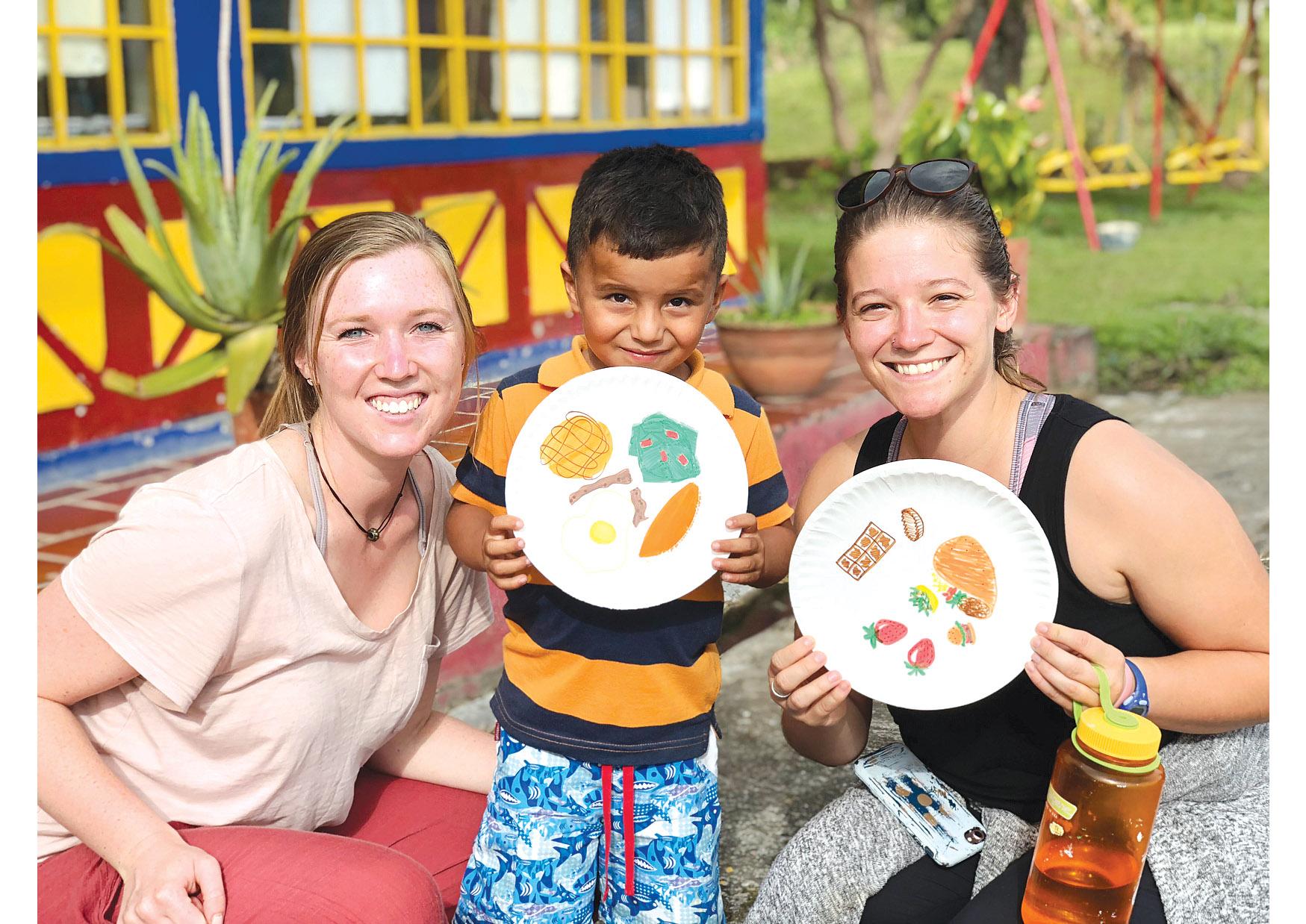
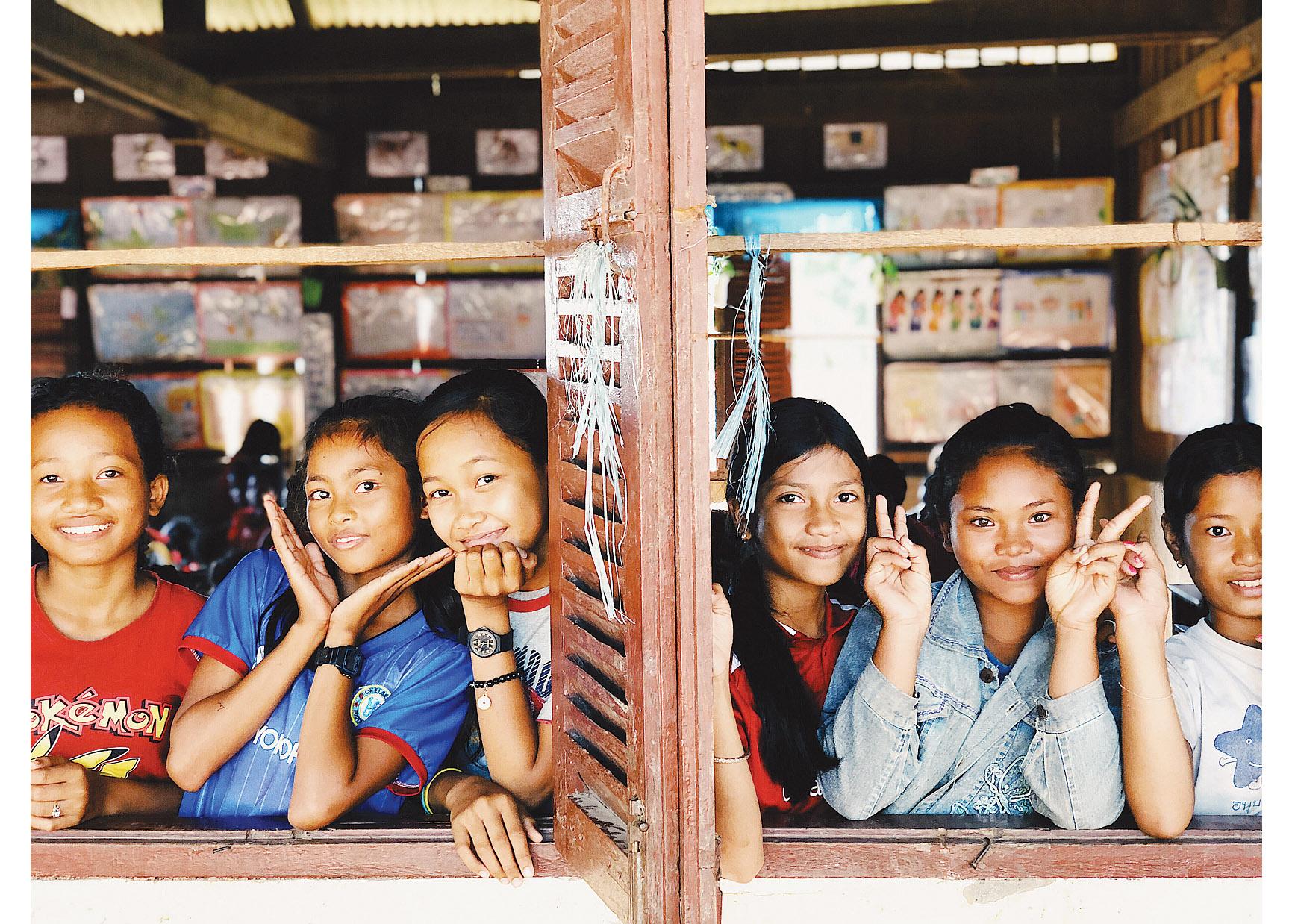
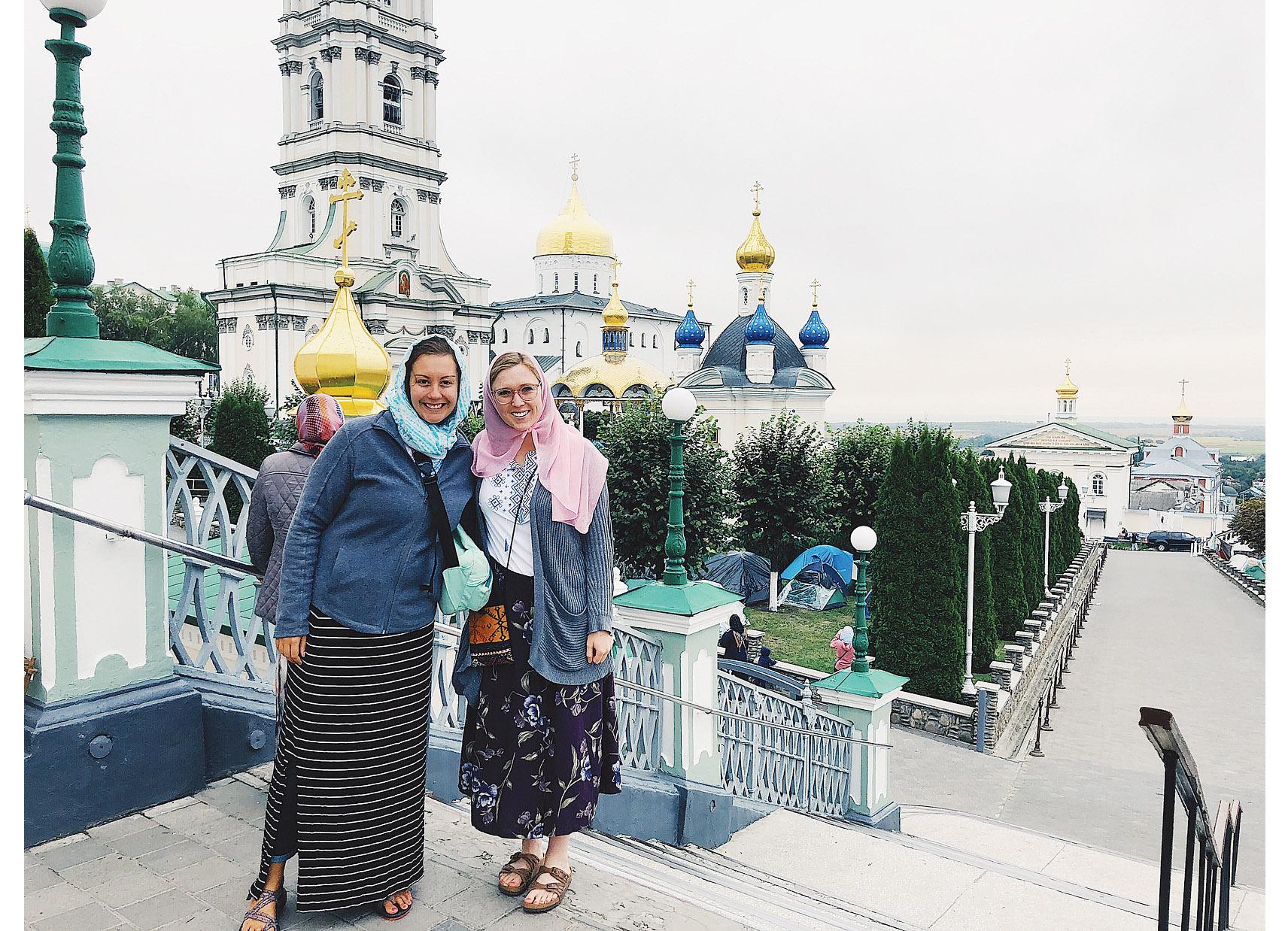
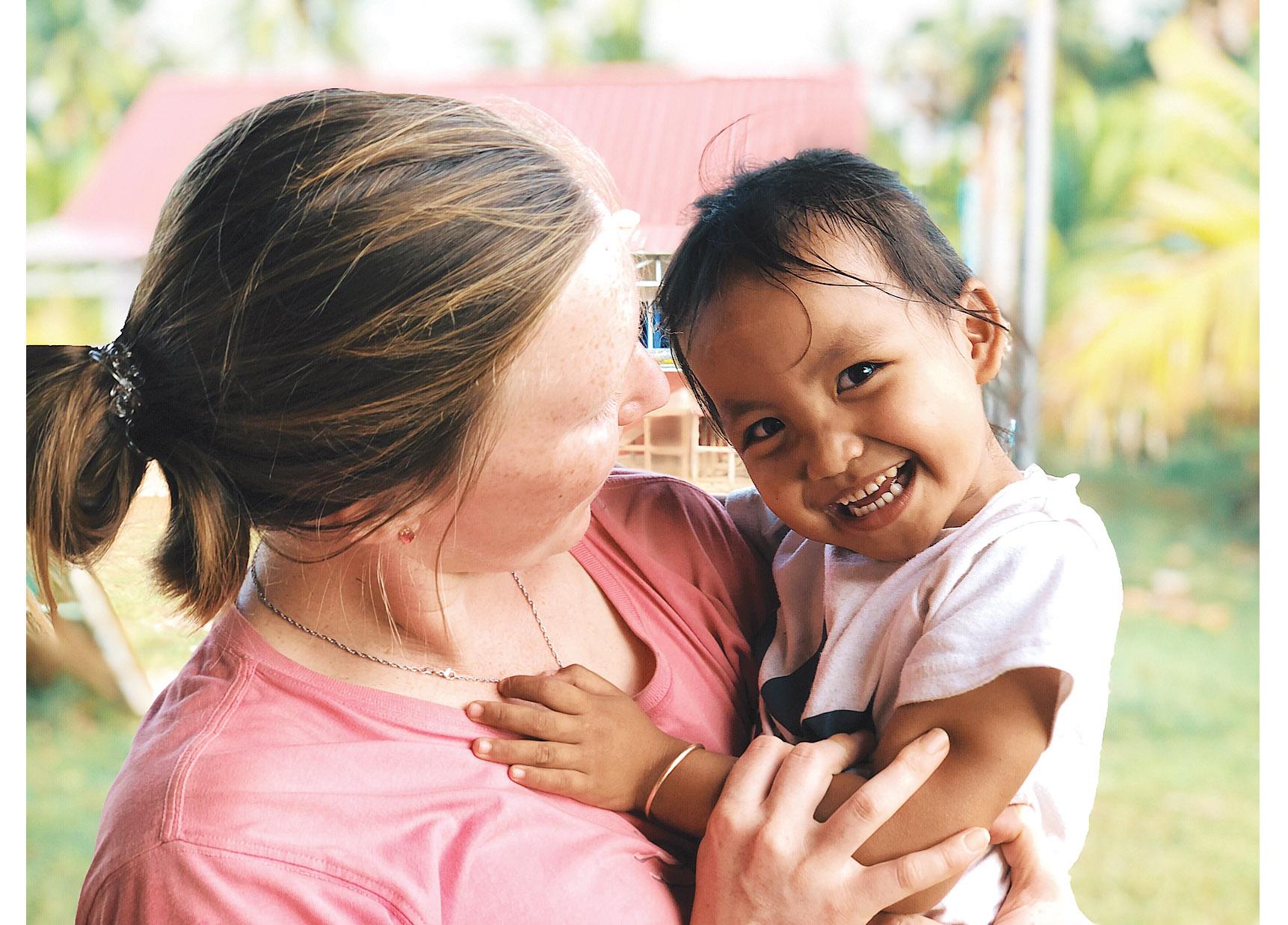
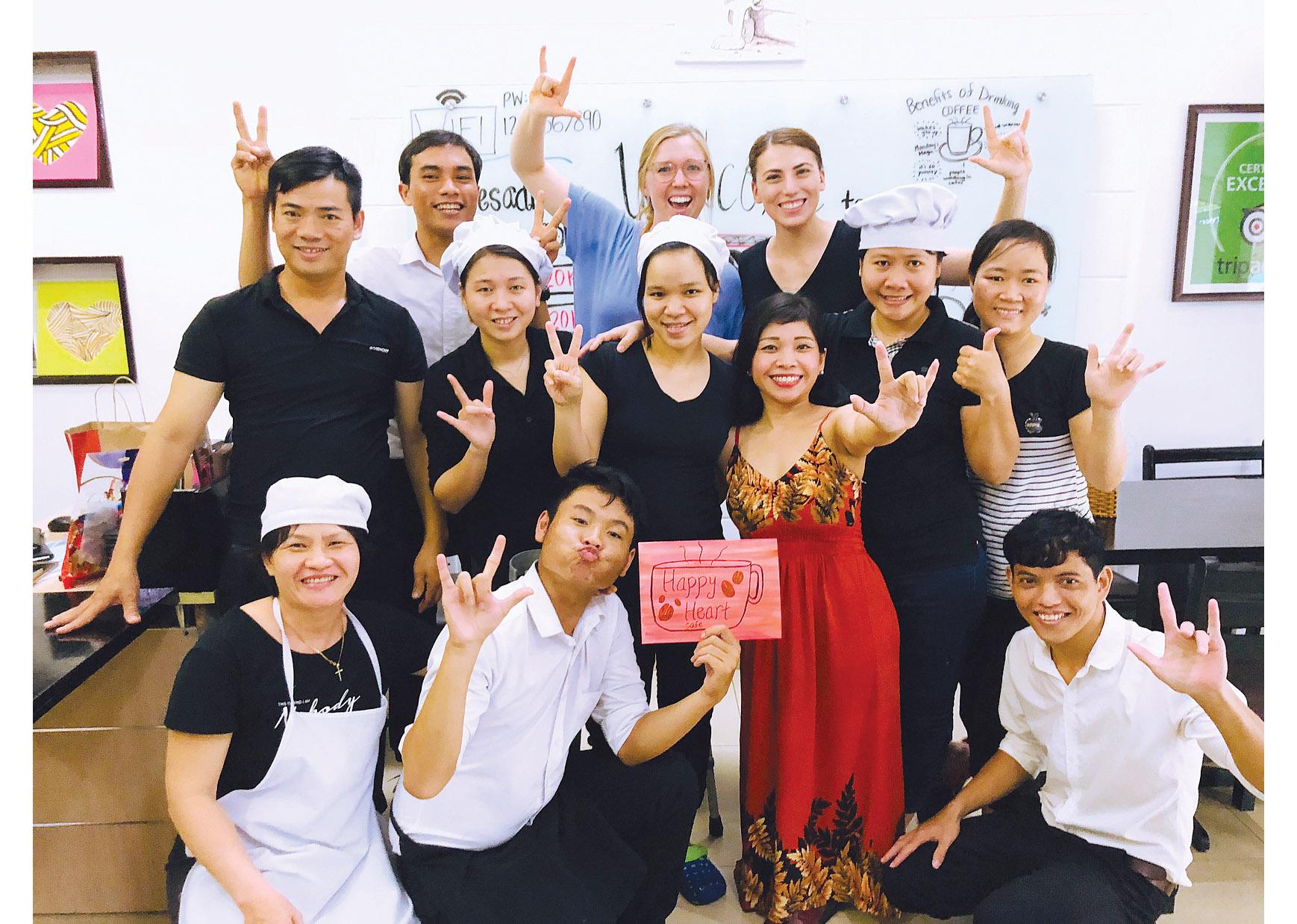
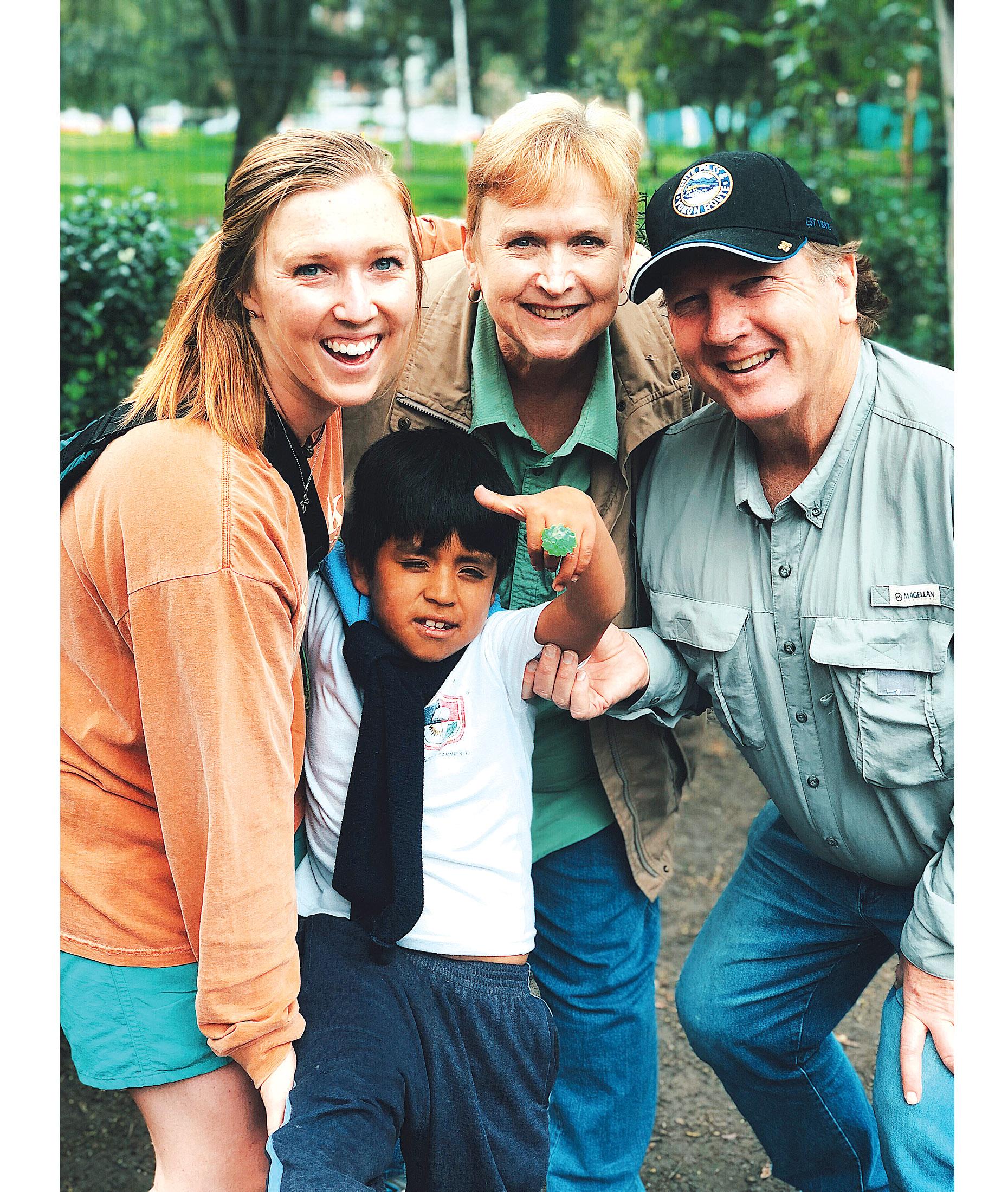

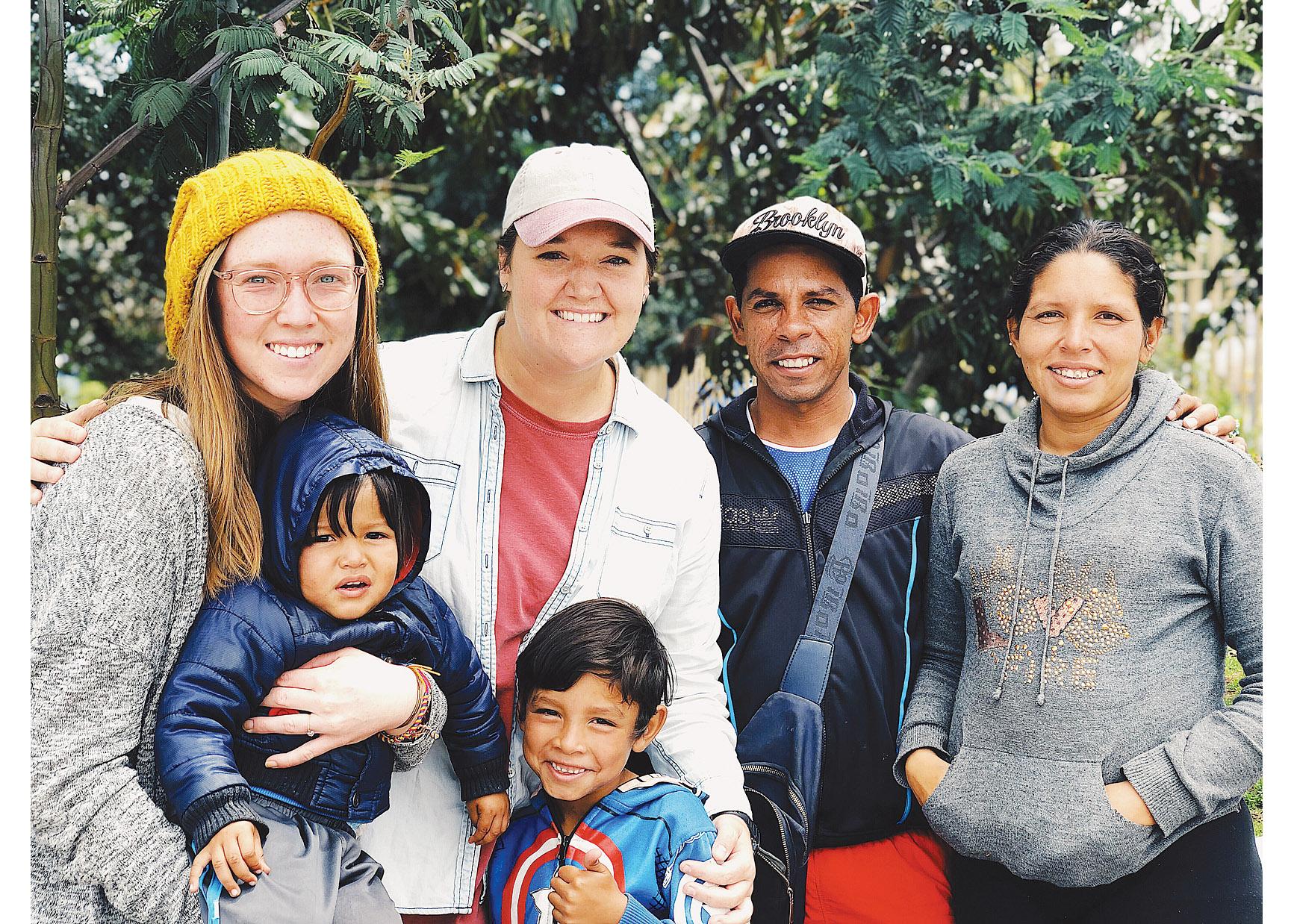
By Donnie A. Lucas
Recent college graduates often want to travel and see the world after years of hitting the books.
Dreams of sun and sand, or backpacking across continents – especially Europe – come to mind. Others may want to join organizations such as the Peace Corps to “take a break” from quickly approaching responsibilities of the “real” world and finding a job.
For Albany resident and 2018 Abilene Christian University graduate Kathryn Hamilton, the dream was spawned years earlier, and her “gap year” between education and entering the job market was much more specific, spiritual, and life changing.
Hamilton, 23, just returned home two weeks ago after an 11-month trek that took her to 10 countries across the globe to as part of an extended mission opportunity. Known as the World Race and sponsored by Adventures in Missions located in Gainsville, Georgia, the trip of a lifetime was also life changing for Hamilton.
“I first heard about the World Race from a close friend of mine when I was 14 and we lived in Dallas,” Hamilton said. “We both said that we were going to do it together after college. I really didn’t think about it much again until my senior year in college.”
Hamilton was a public relations major at ACU who completed an internship in Boston the summer prior to graduating.
“I loved Boston, and the nonprofit where I interned worked with people in need,” she said. “I saw first-hand the need for mission work in our own country, but it also made me start thinking about the World Race again.”
She said that when she returned home from Boston about to start her last year of college, her father asked her about her plans after college.
“A few days after getting back, my dad asked me out of the blue if I still wanted to do the World Race, which we hadn’t discussed in seven or eight years,” she said. “He didn’t have any idea that I had started thinking about it again, so I took that as sign from God to do something in the field of mission work.”
Hamilton applied and was accepted in the fall of her final year and started preparing for the trip that was literally around the world.
“We had a 10-day training camp in Gainsville the month before we left to prepare us for the mission field in the countries where we would be going,” she said. “We spent time understanding our goal or purpose for the trip.”
Hamilton said that there are three main objectives in the mission statement – bring the Kingdom of God to the world through intimacy with the Lord, commune with the body of Christ, and carry out the Great Commission.
People from around the country enter the program, going out in squads of 25 each on four different routes.
“There are three launch windows during the year, with four squads going out during each time frame,” she said. “You apply for one of the four routes, which mine was Eastern Europe, Southeast Asia, and South America.”
Other routes include Africa, Northern Asia, the Middle East, and other parts of the world.
“The Lord drew me to that particular route because I had already been on short mission trips during college to Cambodia and Venezuela,” she said. “I loved both of those cultures, plus my parents had been on mission trips to the Ukraine and Russia, so I picked that route.”
First up for Hamilton was Europe, including the Ukraine, Romania, and Bulgaria.
While those countries have a history of Orthodox Christian churches, religion was also suppressed during the communist years following World War II until the Soviet Union fell apart in the early 90s.
“In each country we worked with a specific organization already established there and assisted them with the ministry they were already doing,” she said. “In some countries, we could be open about what we were doing, while in others there were restrictions. Like in Vietnam, it isn’t illegal to be a Christian but it is illegal to proselytize,” she said. “We had be aware not only of the laws, but the cultural traditions that existed in each country.”
The work in each country varied, sometimes joining large, established ministries such as Campus Crusade for Christ or CRU, or assisting a couple of ministries that had planted a church and needed help reaching people.
“In the Eastern European countries, we talked a lot about having a personal relationship with Christ,” Hamilton said. “The church there is powerful and is centered on worshipping Mary more than Christ. We saw parents having to pay the clergy to offer prayers for a sick or disabled child – it’s just part of their culture.”
Hamilton said that in her opinion, the church there is corrupt and many people, especially older people, are still entrenched in communist-era influences and ways of life.
“We tried to make individual, personal connections with people,” she said. “After we got to know them a little, we could establish trust and share our belief about the importance of having personal relationships with Christ and not thinking that it all depends on the church.”
Asked about language barriers, especially in former soviet countries where Russian was taught rather than English, like in Western Europe, Hamilton said God provided.
“We were at an event in the Ukraine and I was trying to talk to the father of a family that was there, but he didn’t speak English,” she said. “He didn’t understand that the event was sponsored by a local Baptist church that had been planted there. As I was trying to talk to him, a Ukrainian guy walking by heard me and offered to translate. God provided, and it ended up being a good conversation.”
Southeast Asia
After spending the first three months in Eastern Europe, Hamilton and her team shifted to Southeast Asia including stays in Vietnam, Cambodia, Thailand, and Myanmar.
“We first went to De Nang, which ended up being one of my favorite places,” Hamilton said. “I worked in a coffee shop which attracted a lot of tourists, so there were people there from everywhere. I loved making coffee and making connections with people. If I got to know them a little, then I could work in why I was there and eventually share my beliefs.”
While in Asia, most participants gained entrance to a country with the goal of teaching English.
“Cambodia and Myanmar were definitely the most impoverished countries we visited,” she said. “The living conditions were the worst we saw, but it also provided some of the most fruitful times. We lived with families throughout the trip, so it wasn’t a matter of doing ministry and then going to a hotel at night.”
She said that organizations already established were allowed to teach English in most cases.
“The people want to learn English – it is one of their few ways out of poverty,” Hamilton said. “Despite their poverty they were so fun-loving and so willing to learn. Once we built relationships, then we could share.”
South America
Hamilton’s squad moved to South America as spring approached, but of course it was winter in the southern hemisphere.
“It was so cold in Bolivia, and people have so little,” she said. “We were in South America primarily to help with feeding ministries. There were so many refugees from Venezuela in the surrounding countries because of the political situation.”
However, her time in Ecuador and Columbia had the most impact of this leg of the race.
“It was amazing to get to work with the refugees from Venezuela,” she said. “I already had a heart for them because of my earlier mission trip, but they were mostly homeless or in camps. It was a desperate situation.”
She added that the Lord taught her that she has to meet people where they are.
“Ministry doesn’t stop when you hand out some food and the formal effort ends,” she said. “You have to be open to the opportunities that come up such as meeting people on a bus or just while walking trough the streets.”
Perhaps the ugliest reality for Hamilton to comprehend was the level of human trafficking that exists both in Southeast Asia and South America.
“It’s a global problem anywhere there is extreme poverty,” she said. “We did a prayer walk one night through a red-light district, and it changed how I feel about the whole issue. It went from being something to care about to a main focus.”
She said that people actually sold their children because they couldn’t feed them, or young adults would be promised jobs in other countries that weren’t at all what they were told.
“It was heart-shattering,” she said.
Besides sharpening her focus for future ministry, Hamilton said that she truly saw God restoring people’s lives.
“I realized that the hope in Jesus is truly so powerful and not just something we say or read about.”
Life Lessons
Hamilton says the World Race changed her.
“We have a debriefing coming up back in Georgia at the end of the month,” she said. “They will spend time helping us integrate what we learned and experienced into our lives back here at home.”
One of the most difficult areas of personal growth for Hamilton was perseverance.
“I found that service to people is ministry, but it isn’t sustainable without a personal closeness to the Lord,” she said. “When you miss home and all the comforts we are used to, you have to draw close to God and let Him fill the void.”
Another life lesson learned was living in unity with her fellow travelers.
“It is hard to live with people for as long as we did and not be in unity,” she said. “You just have to rely on the Biblical models defining unity and live it. We learned to be honest with each other, and it isn’t fun to be rebuked. I learned a lot about grace, both having it extended to me and me having to give it others.”
Hamilton said she grew up in a home filled with strong opinions.
“I was the girl with two brothers, so I had to learn how to have my opinion heard while I was growing,” she said. “Then I had to learn to submit in some ways to others, and I’m not always right or I’m not going to get my way. I had to hold my tongue and learn prudence and humility. It was a pruning season for me, especially early in the trip.”
She feels she found ways to communicate more effectively and how to live in peace.
Hamilton said she talked with her parents about twice each month, marveling at the world-wide access to the internet – even in impoverished countries.
Her parents, Debbie and Paul Hamilton, were able to join her in Ecuador for a week of ministry together.
“That was so special,” Kathryn said. “Each of us on the trip had the opportunity to plan a project and have our parents join us for a week so they could experience what we were doing.”
Hamilton says the fellow travelers in her squad are now all part of her family as well.
“We are scattered all over the country, but we will be back together for the debriefing, and then we will see where God takes us,” she said. “I don’t have any idea what is next, I just need to be open to how He calls me.”
For now, she says she needs to rest spiritually, emotionally and physically before the trip to Georgia.
“Then I just need to listen to Him for what is next, whether it’s a job or whatever,” she said. “I know there is a plan.”

